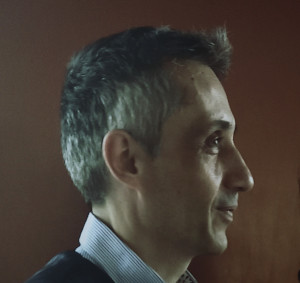From improving your focus, health, to reducing stress and anxiety, the benefits of meditating are boundless. Whether you have been meditating for a long time or just started, you’ve likely experienced some of these benefits.
However, many people claim that despite meditating, they do not experience the benefits. Either you have been meditating for a long time, but lately, you feel like something is missing. Or, you’ve just recently started meditating, but the fruits are not apparent.
The effects of meditation are neither myth nor placebo, as they have been clearly documented in several studies and extensive research. (Further reading: 8 Health Benefits of Meditation – What the Newest Research Shows)
This then implies that if you are not getting much from meditation, you are likely doing something wrong. Not to point fingers, but understanding failure is always a great way to rectify it. In this case, once you understand where it is that you might be going wrong, you’ll be on your way to getting the best from meditation.
To that note, here is a list of the major mistakes that people make when they are meditating – especially when they are new to meditation. Beyond the errors, let’s also look at the best remedies in each scenario.
1. A lack of consistency
Of all the mistakes people make while trying to meditate, the most prevalent is being inconsistent.
For mediation’s benefits to manifest in your life, you need to be consistent. While you may feel like nothing is happening at the moment, the more you do it, the more you’ll notice the results.
In meditation, consistency is vital, which is why it should be your chief concern. Some people will opt for meditating for an hour or so, but keep skipping days. Unfortunately, this is going to bear little – if any fruits.
Instead of meditating for an hour or even ten minutes but keep skipping days, consider lesser time, where you get to do it daily. You can even start with a two-minute meditation every day.
While everyone has their ideal schedule if you find yourself struggling, try and meditate in the morning, just after you wake up before you have a shower or take breakfast.
For most people, the day really kicks off when they have breakfast, that’s when they notice they are late for work, or they are yet to finish an assignment. To keep away from this bustle, meditate just when you get up.
Additionally, if you suspect or know you’re going to have a busy day tomorrow, why not set the alarm a few minutes earlier and spend the time meditating? Traveling or having a roommate? Meditate in the park or in the bathroom. The point is, ensure you do it at least once a day, without breaking this consistency.
Read also our article: Warnings about Meditation (Precautions and Negative Side Effects). – Opens in new tab

2. Jumping from one technique to another
The world today is full of choices. If you don’t like a kind of apple, you go for another the next time you’re out shopping. If you don’t like a particular brand; you change it without hesitation.
There’s nothing wrong with choices, but when it comes to meditation, they can do more harm than good. There are myriad meditation techniques today.
As you begin meditation, you’ll likely be curious to understand and try out all these techniques. While there’s nothing wrong with this, you should be cautious about how often you change the technique you’re using.
If you move from one technique to another in a matter of days, you won’t have given the technique a chance to showcase its might and prowess. On the other side, if you stick to one routine –especially when you’re just starting, you could miss out on something that could be proved more helpful in another routine.

Then, this begs the question, where is the middle ground? How do you move from one technique to another without rushing or stagnation?
Well, it is advised you spend around one to four weeks on a particular style, and then move on to a different one. Of course, this is mostly recommended to those that are just starting. As you continue trying out different techniques, you’ll find one that fits you and your preferences.
Once you have a preferred style, it is best to stick to it. Think of it this way, if you changed your name every day, it would be hard to recall any of the names. In some cases, you might not even respond when your name is called. The same goes for meditation routines; if you move too quickly, you’ll miss out on the impact.
Once you have found your style, and with time, your mind, body, and soul will start to connect to the style and the process involved. At this point, you’ll start experiencing more benefits from meditation.
Related reading: Finding time for meditation in a busy schedule – Opens in new tab
3. Doubting if you are doing it right
Have you ever anticipated results, an outcome, or even a gift? Often at times, it’s easy to lose focus on the objective and to get lost in your thoughts. As a kid, you may have been so anxious about what Santa was going to gift you for Christmas that you couldn’t think of anything else.
In meditation, especially when you’re starting off, it’s easy to question yourself if you’re doing it right, and whether you’re getting the most from the exercise. While these are important questions, asking them while meditating is a sign that you’re veering off.
The beauty of meditation is mindfulness when your being forgets of everything that is around you, and you focus on yourself. This act of going deeper into oneself is of great help when you’re meditating.
Unfortunately, it’s so easy to overanalyze what you’re doing, that you end up focusing on that instead. When you are busy over-analyzing, if what you’re doing is correct, the mind starts focusing on these thoughts.
Additionally, before you figure out you’re veering from meditation, and you’re now off course, it’ll take a few minutes, to take valuable meditation moments.
Telling you to simply not doubt yourself is not going to cut it. So what can you do to minimize this self-doubt and over-analyzing? The first step is to focus on the meditation object. During meditation, keep your attention on the object as long as you can.
Second, is to notice the small ways you get distracted. Your mind doesn’t move from one step to another in a matter of seconds; it is a slow and gradual process.
However, there are specific triggers that can alert you the focus is shifting. Take note of these subtle triggers, and soon as you notice them, go back to the previous step.
Related article: “Meditation, where to start” – Opens in new tab.

4. You’re consuming too much media
Being in a state of restlessness can significantly impact the quality of your meditation. The media you consume contributes to being restless. Notice, the focus is not on one form of media, but on media in general.
All media, ranging from social media, TV, radio, movies, games, news, and articles, can get you restless. You see, the notion behind media is to have a memorable topic and something that affects your emotions.
When you finally get to meditation, these feelings and thoughts will start flowing through your mind. These not only act as a distraction but also triggers emotions that could sabotage the success of your meditation time.
What are some of the ways you can limit the influence of media on meditation?
- Start by limiting the media you consume – When you’re meditating, you have an objective in sight. However, as formerly mentioned, media consumption will disrupt your achieving of the goal. To help with this, before you actively decide to consume any media, first, evaluate what it could do to your meditation time. Essentially, always ask yourself what you’re installing to your brain and the impact.
- Also, limit the amount of media you consume – Years ago, meditation was arguably easier since there weren’t so many distractions. You can achieve some of what early meditators experienced by limiting the amount of media you partake in. For instance, you can decide to keep away from media before you meditate or after a certain set time.
- Try a media fast – Every so often, it’s a good idea to cleanse yourself from all the media you have been consuming. You can have a weekend every month or a day every week when you shut off any media source.
While there are a lot of positive stories about there, much of the news is negative. Games are getting more violent; movies are becoming more graphic, and so on. All of this will impact the quality of your meditation. Unplugging from all this madness will help improve the quality of your meditation. At the same time, it will help you feel less stressed and boost your productivity.
Related reading: Addressing 10 Common Myths about Meditation – Opens in new tab
A lady talks of how she learned she was addicted to social media, spending around a third of the day on one social media platform or the other. Upon this realization, she decided to change. She made a drastic change to swap the time she spent on social media and turn it into meditation.
Of course, with radical change, meditation didn’t work. With time, however, she learned how mindfulness could positively impact her life.
Everyone makes mistakes. Admitting this is the first step to improving the quality of meditation. Once you realize there’s a problem and know what it is, you’re already stepping to fixing it.
Do you want to learn more about Meditation? Check out our recommendations at “Meditation Bookshelf” and many free resources at our “Free MeditationLibrary“ – Opens in new tab
Stay in Touch
 Join our newsletter by using the forms on this website or click here!
Join our newsletter by using the forms on this website or click here! Follow us on Google News
Follow us on Google News Follow us on Facebook
Follow us on Facebook
Featured image from Depositphotos







